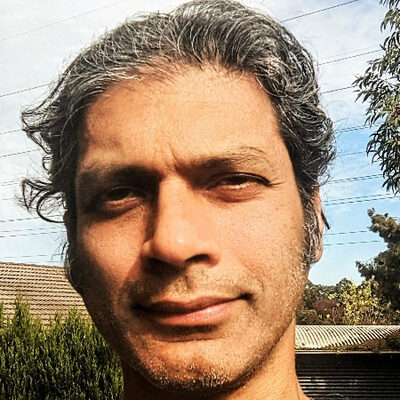Among all the valued options that you have in life, why would you choose to do a PhD, and how would you do it ethically? So that I can help shed some light on the way our desires and morals operate here, I can share my experiences, but before I do that, let me identify the actual problem.
It was Thomas Hobbes, the influential English philosopher, who maintained about desires and ethics behind intentions that ‘no man giveth but with intention of good to himself; because gift is voluntary; and of all voluntary acts the object to every man is his own pleasure.’ He believed that, in human beings’ natural state, moral ideas do not exist, a sentiment not shared by many today. If Hobbes was right, we go even for a PhD because of psychological egoism, and we will do it ethically only to meet the moral obligations – if and when they arise when natural law or laws of the state compel us.
This may sound controversial for many, so let me dissect it. The PhD, or Doctor of Philosophy, as the highest level of degree that a student can achieve in tertiary education, arrived in its modern form in Germany in the 17th century. It typically requires a masters or honours bachelor’s degree and a high academic standard to enter and is expected to take three to four years to complete full-time or twice that part-time. The completion rate is, generally, poor, prolonging it is typical and is not smooth sailing, according to an article in Nature, PhDs: The Tortuous Truth, that surveyed more than 6,000 graduate students.
A PhD journey is never smooth sailing
A PhD journey is like the life journey of Pi of the popular fiction, according to one scholar, Olivier Germain, who presents a recent collection of journal articles by PhD graduates about their doctoral journeys entitled Living the PhD Journey, published in the journal M@n@gement. He says, ‘As Pi related his adventures, we theorise the doctoral journey to make it bearable by reinterpreting its trials, cultivating a ‘sufferer’ vision of the thesis.’ One writer, Pei Yi Wang, recalls her reflections on her anxiety when she submitted her thesis after five years’ work: ‘I can’t seem to move forward. I’m paralysed while drowning in my own fear.’ The experience ‘puts you in situations where you really have to work on yourself and show resilience,’ says Julie Delisle. For Kamila Moulaï, it is a journey that requires one to liberate one from self.
Motivations for a PhD
Many get attracted to a PhD for an academic career, research jobs, salary increases, improved living conditions, i.e., for migration (to a prosperous country), prestige, etc. According to a case study conducted at the University of Melbourne by Naylor, Chakravarti and Baik, the desire to make a difference, increased autonomy and personal development are common motivations for taking up doctoral studies. Michelle Mason, another academic researcher, claims in her paper that having the freedom to pursue one’s own research interests and global perceived competence are key motivations for doctoral students. Philosophers from Karl Marx to Slavoj Žižek and beyond – many of whom are increasingly undertaking PhDs – suggest that a more critical and analytical questioning of motivations may be necessary. After all, most of today’s psychological theories of motivation had their origins in the work of philosophers like Plato, Aristotle, Descartes, Locke, James, etc. Philosophical inquiry tends to categorise our motivations into two types. One is the motivation for sustenance, a need, even common to animals, which the psychologist Abraham Maslow labels a primary motive. The other is for psychological reasons, i.e., for self-esteem, for self-actualisation, etc., which he labels as secondary motives.
Desires that trigger motivations
As we can see, motivations to achieve employment benefits would fall into primary motives, whilst striving for academic excellence, ego boost, altruistic reasons, prestige, all involving some desire for recognition, would go under secondary motives. The desire for career growth and thirst for knowledge, etc., can fall into either or both. Interestingly, these desires that trigger our motivations are treated today as needs, especially with the influence of theories of motivation, also known as needs theories, introduced in the last century. But, historically, questioning desire was not uncommon.
2300 years ago, the Greek philosopher Epicurus grouped desires into three types: ‘natural and necessary desires, natural but non-necessary desires, and “vain and empty” desires.’ Natural and necessary desires, like our desires for sustenance, shelter, etc., are easy to satisfy but must be fulfilled. Vain desires are for power, wealth, fame, are limitless and are difficult to satisfy. The desire for luxury food is a natural but non-necessary desire. Epicurus recommends that we should fulfil only natural desires and should eliminate vain desires, although such practices may appear as unrealistic to us today.
2500 years ago, in India, the Buddha, too, recommended similar lifestyle practices, although he advised followers to practise them moderately, encouraging to stay away from intense desires or cravings (taṇhā), whether that be cravings for sensual experiences (kāma taṇhā), cravings for the ‘thirst to be’ (bhava taṇhā) or even cravings for transcendence(vibhava taṇhā).
When it comes to PhDs, could we then reflect on our own motivational desires in terms of the concept of moderation? I must admit that it was quite difficult for me to achieve moderation since my PhD research involved defending Buddhist soteriology (the theory of salvation through liberation from life as suffering), which profoundly critiques desire itself. What moderate level of desires could I hold onto and still stay sane?
Desire for recognition
And so, as one of the first exercises of my PhD programme, I thought through and evaluated my motivations and desires for doing a PhD against the non-theistic Buddhist notion of taṇhā (cravings). Confessedly, unlike for many others, employability or better income wasn’t a priority for me as I already had some other occupation. There, I identified the desire for recognition – to boost my ego – as a key motivation, together with motives to resolve suffering in the world by helping the world with valuable research findings, which I saw as altruistic. But should having ‘noble’ desires, as your PhD goal, be a praiseworthy quality?
For the influential German philosopher Kant, it is not. For him, ‘a person is only praiseworthy for doing the right thing if the person acts only from the motive of duty, and not from an ‘inclination’ (a desire) to do the right thing.’ However, Aristotle, like many of us, held that ‘a desire to do what is right and knowledge of the right are both required for an otherwise appropriate act to be praiseworthy.’
Irrespective of how you value them, I say, our motivations seeking academic excellence and the associated glories still involve a ‘thirst to be,’ an ego desire, which, in a way, is, what Epicurus calls a vain desire or the Buddha, ‘bhava taṇhā.’ Yet such desires for recognition are elemental components of our nature as social beings, according to G. W. F. Hegel. Besides, we cannot simply abandon our ego desires, as the ego is a part of us.
Even in Buddhism, according to the Buddhist scholar Peter Harvey – who incidentally was an examiner of my PhD – ego is not denied, ‘though it is seen as ultimately based on a misperception of reality,’ which means such a mistaken belief can lead to undesired consequences. After all, greed leads to bad consequences is mere common sense, an idea found in most humanisms – secular or religious – that propose a balanced life.
Ethics
Such cautions are not only practical life advice, but they also aim to uphold morality in society. For instance, they can indirectly alert us that society might not accept all our desires, such as getting a PhD by any means. The issue today, nevertheless, is on the loose, with so many stories about people getting doctorate titles dubiously, a practice common in developing countries, where regulations are lacking. Some universities even risk their ranking when under pressure from powerful politicians, seeking doctorates as embellishments and forgoing the standard procedures for PhD entry and examinations. In fact, it is not only the universities in developing countries that have been reported of such controversial dealings with politicians like Mugabes in Zimbabwe or Rajapaksas in Sri Lanka. Ten years ago, even the London School of Economics was embarrassed for offering a PhD to the then Libyan leader Gaddafi’s son in return of a £1.5m donation.
As is known, a PhD examination process should require the examiners to be ‘appropriately qualified experts of international standing in their discipline/field’ and external to the university, according to criteria published by Victoria University. Yet, stories about faking PhDs keep increasing. A quick search online for ‘fake PhD’ or ‘fake doctorate’ gives many news hits such as: ‘Cops stop fake doctorate ceremony,’ and ‘Lecturers with fake PhD to face criminal action’ in India.
Honorary doctorates
Another dubious practice is the ‘honorary doctorates’ offered by universities, which attract rich and famous personalities merely interested in their own glorification. Darren Saunders, a senior lecturer in medicine at the University of New South Wales, recently told ABC News, that when it comes to instant doctorates for celebrities, universities could risk their reputations: ‘Former Libyan dictator Moamar Gaddafi had a number of honorary doctorates. Mike Tyson has a few; Kermit the Frog has got one.’ However, he says, ‘It’s considered pretty poor form to go and call yourself doctor once you have received an honorary doctorate.’ But what to do if you belong to a culture where such malpractices in enrolling or granting PhDs are widespread?
Such malpractice is often justified by a certain ethical – or cultural – relativism, which, according to the Markkula Centre for Applied Ethics, is the claim that ‘whether an action is right or wrong depends on the moral norms of the society in which it is practised.’ It can indeed be challenging for institutions in many postcolonial or ‘developing’ societies to maintain the normative ethical standards expected by international institutions if they are also endeavouring to nurture so-called precolonial ethical traditions in the face of what they take to be colonial or ‘introduced’ ethical standards. But such endeavours can backfire if the rejection of international norms is taken to justify malpractice. Such institutions thus have much to do to negotiate the codes of ethics of bodies such as Quality in Postgraduate Research that aim to develop a better understanding of the practices of doctoral education.
A mindful approach to your PhD journey
However, my ethical dilemma in my PhD was a little different because I wanted my PhD journey to be grounded in lived experience and to help me solve my own existential, spiritual and political problems. I found that the seemingly simple practice of reflection on one’s thoughts and actions, or what has come to be known as ‘mindfulness,’ helped me on my journey, as Barry, Warnecke and Wood have suggested is the case for many PhD students. My practice in critically exploring my motivations transferred well into the reflective and analytical thinking of my PhD.
But such mindfulness can also help us with our ethical dilemmas because it is only if we have the right moral conduct (sīla in Buddhism) with utmost honesty, not out of a Hobbesian fear of the law, that we can be free of worries, regrets and distractions and thus be fully mindful of ourselves – the precondition, according to Buddhists, for ‘enlightenment.’ And, so, it is with that lived experience that I endorse a mindfulness-based reflection as key component of the PhD journey – and the PhD as a pinnacle of progress in humanity’s struggle for recognition – and propose mindfulness as a starting-point for institutions to foster more ethical practice in the PhD, more generally.




